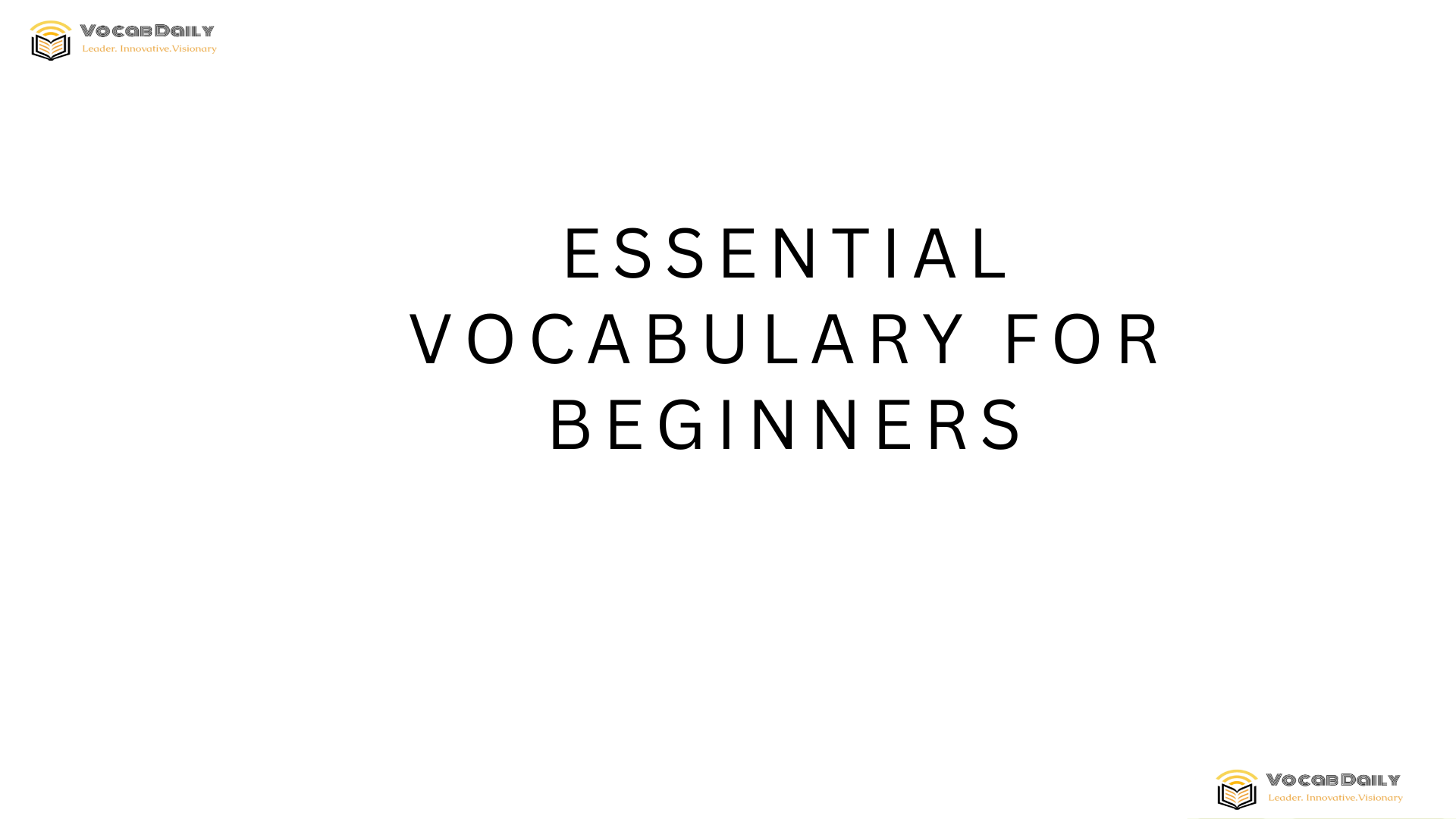Why Building Vocabulary is Important for Beginners
Learning English vocabulary is a crucial step for anyone beginning their language learning journey. A strong vocabulary foundation enables learners to communicate clearly, understand written and spoken language better, and gain confidence. Without a grasp of essential words, it becomes difficult to navigate conversations, read texts, or express thoughts effectively. As a beginner, focusing on commonly used words and phrases can accelerate your progress and make daily interactions easier.
Common Everyday Words Every Beginner Should Know
Familiarizing yourself with everyday words is fundamental to mastering English. These simple words form the basis of most conversations and are frequently encountered in daily life. Words such as hello, thank you, please, yes, and no are indispensable as polite expressions and responses. Other common nouns like house, food, family, and friend make it easier to talk about personal life and surroundings.
For verbs, it’s essential to start with basic action words like go, come, eat, drink, sleep, and work. These verbs represent everyday activities that you are likely to discuss regularly. Once you master these words, you can build simple sentences such as “I go to work” or “She eats food.”
Essential Vocabulary for Greetings and Introductions
When meeting new people, greetings and introductions are critical. Some key words and phrases include:
- Hello
- Good morning
- Good afternoon
- Good evening
- My name is…
- Nice to meet you
- How are you?
- I am fine, thank you
Using these phrases correctly helps you make a positive first impression and facilitates friendly communication. Practice repeating these sentences out loud to improve pronunciation and build confidence.
Numbers, Days, and Time: Basic Vocabulary for Beginners
Knowing numbers and time-related words supports many practical situations like shopping, scheduling appointments, or asking for the time. Start with numbers 1 to 20, then gradually learn tens like 30, 40, and 50.
Days of the week and months of the year are also important. Common words include:
- Monday
- Tuesday
- Wednesday
- Thursday
- Friday
- Saturday
- Sunday
Time expressions such as morning, afternoon, evening, today, tomorrow, and yesterday help in everyday conversations about schedules and plans.
Basic Colors, Shapes, and Descriptions
Describing objects and surroundings requires knowledge of colors and shapes. Knowing these helps you identify items, ask questions, and give accurate information. Some essential color words are:
- Red
- Blue
- Green
- Yellow
- Black
- White
Common shapes you should learn include:
- Circle
- Square
- Triangle
- Rectangle
Using descriptive adjectives such as small, big, long, short, hot, cold, and beautiful adds detail and depth to your sentences, making your English more vivid and clear.
Family and People Vocabulary for Social Interaction
Talk about yourself and your close relationships using essential family and people-related vocabulary. Start with simple family member words like:
- Mother
- Father
- Brother
- Sister
- Friend
- Child
Additionally, learning words that describe people and their professions can help in conversations about work, hobbies, or interests. Common roles include teacher, student, doctor, engineer, and driver. Introducing yourself with your occupation lets others know more about you and your daily life.
Useful Verbs and Action Words
Action verbs are vital building blocks for forming sentences. They describe what people or things do. Some must-know verbs for beginners are:
- Be
- Have
- Do
- Go
- Come
- See
- Eat
- Drink
- Speak
- Listen
Using these verbs allows you to talk about actions, states, and abilities. For example, “I am happy,” “She has a book,” or “We go to school.” Remember, practicing these verbs in different tenses improves your grammatical skills alongside vocabulary.
Common Adjectives to Describe People, Places, and Things
Adjectives add color and detail to your sentences by describing nouns. Beginners should learn adjectives that describe size, shape, color, mood, and qualities. Examples include:
- Happy
- Sad
- Big
- Small
- Hot
- Cold
- Fast
- Slow
These words help you express feelings and describe your environment more accurately. For example, “The big house is beautiful” or “He feels sad today.” Repeated use in speaking and writing will boost your vocabulary retention.
Common Phrases and Expressions for Beginners
Besides individual words, learning set phrases is valuable. These fix expressions help you communicate smoothly and sound natural. Some examples include:
- How are you?
- Thank you very much
- Sorry, I don’t understand
- Can you help me?
- Where is the bathroom?
- How much does this cost?
Memorizing and practicing these expressions will enable you to handle basic conversations in shops, restaurants, and other everyday situations with ease.
Tips for Expanding Your Essential Vocabulary
To grow your vocabulary steadily, use several effective methods. First, practice regularly by reading simple texts, watching videos, or listening to English songs. Repetition is key to memorization. Flashcards and vocabulary apps can also aid your learning.
Secondly, try to use new words in sentences and conversations. Using vocabulary actively rather than passively helps internalize the language better. Don’t hesitate to repeat after native speakers or language learning videos to improve pronunciation.
Lastly, keep a vocabulary journal. Write down new words with meanings and example sentences. Reviewing your journal daily can reinforce your vocabulary knowledge.
How Vocabulary Daily Can Help You Learn Faster
Learning essential vocabulary is easier when you use reliable resources like Vocabulary Daily. It offers tools designed to help beginners master new words efficiently. From daily vocabulary emails to interactive quizzes, it provides opportunities for continuous practice and engagement.
With targeted vocabulary lessons, beginners can focus on the most useful words and phrases first—saving time and maximizing learning impact. Check out Vocabulary Daily to boost your English vocabulary skills and become a confident communicator quickly.

Leave a Reply